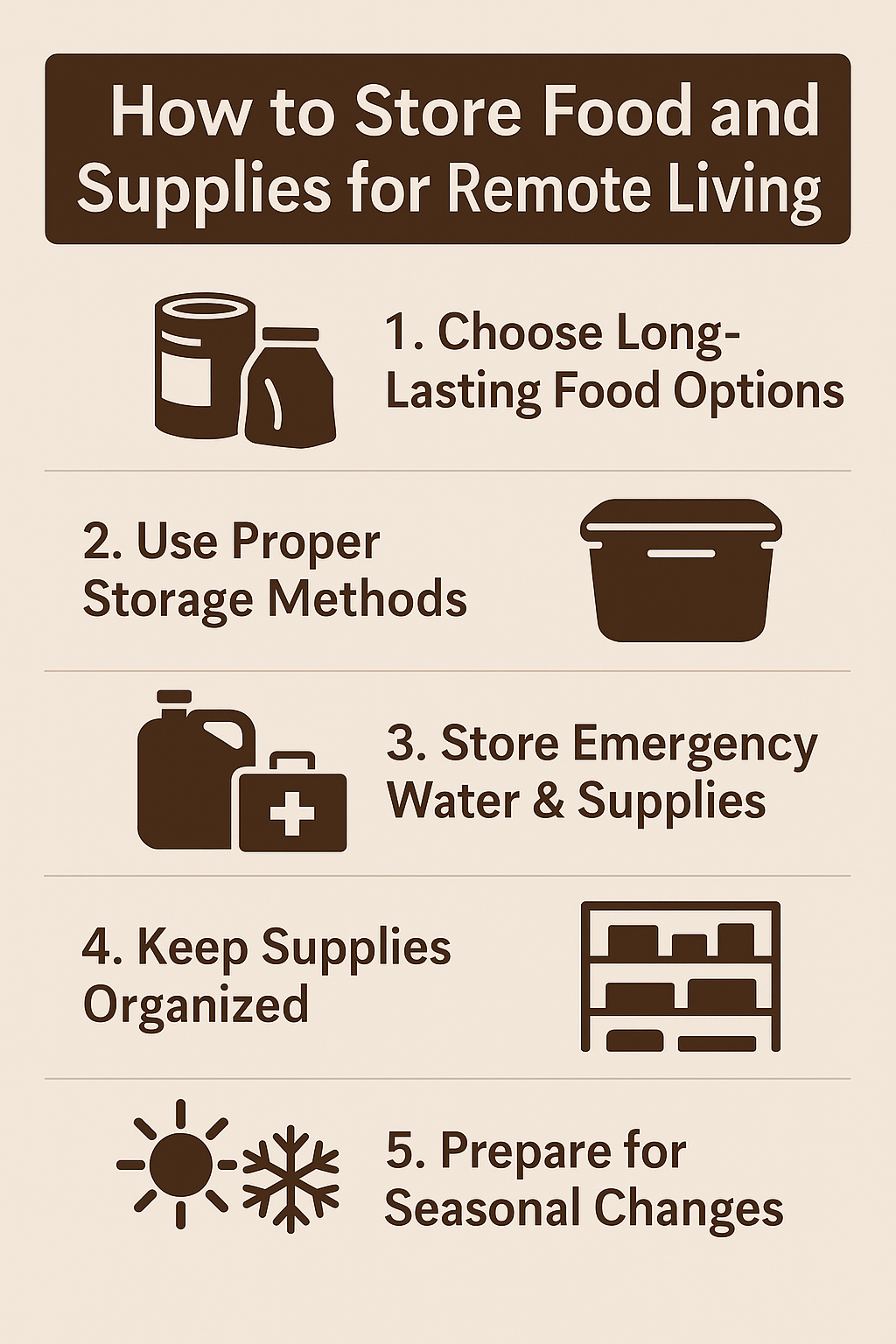How to Store Food and Supplies for Remote Living
Why Storage Matters for Remote Living
Living on remote land in Utah means fewer trips to town and more reliance on what you have on hand. Good storage practices keep food fresh, supplies organized, and essentials ready when you need them. Whether you live off-grid year-round or use your land seasonally, planning ahead ensures you won’t be caught unprepared.
1. Choose Long-Lasting Food Options
Stocking the right food is the first step to successful remote living.
Canned Goods: Vegetables, beans, meats, soups, and fruit.
Dry Staples: Rice, pasta, oats, flour, and powdered milk.
Freeze-Dried Meals: Lightweight and long-lasting—perfect for emergencies.
Bulk Pantry Items: Sugar, salt, cooking oils, and spices for flavor and preservation.
2. Use Proper Storage Methods
How you store food is just as important as what you store.
Airtight Containers: Protect against pests and moisture.
Cool, Dark Spaces: Avoid sunlight and heat, which shorten shelf life.
Rotation System: Use oldest items first to prevent waste.
Vacuum Sealing: Extends the life of dry goods and prevents freezer burn.
3. Store Emergency Water & Supplies
Food storage goes hand-in-hand with other essential supplies.
Water Storage: At least one gallon per person per day for two weeks.
Backup Cooking Sources: Propane stove, solar cooker, or wood-burning stove.
Lighting & Power: Solar lanterns, flashlights, batteries, and portable chargers.
Medical Supplies: First aid kits, prescription meds, and over-the-counter essentials.
4. Keep Supplies Organized
A well-organized storage area makes it easier to track inventory and find what you need.
Shelving Units: Keep items off the floor to prevent moisture damage.
Labeled Bins: Separate food, tools, cleaning supplies, and gear.
Inventory Lists: Track quantities and expiration dates for quick checks.
5. Prepare for Seasonal Changes
Utah’s weather can shift from extreme heat to freezing temperatures. Adjust your storage to handle both.
Insulate Storage Areas: Protect items from freezing or overheating.
Pest Control Measures: Keep rodents and insects out year-round.
Stock Seasonal Items: Firewood for winter, extra water for summer.
FAQ
How long will stored food last in remote conditions?
It depends on the type and storage method—properly stored canned goods can last 1–5 years, while freeze-dried foods may last 20+ years.
Do I need special storage buildings?
Not always, but an insulated shed, root cellar, or pantry space can help extend shelf life and keep supplies safe.
How do I protect food from wildlife?
Use sealed containers and store supplies indoors or in secure outbuildings.
Why Choose Mountains West Ranches
We help land buyers plan for all aspects of remote living—from selecting a property to preparing it for long-term use. Our experience with Utah’s unique climate and off-grid challenges means we can guide you on storage, utilities, and self-sufficiency, so you can enjoy your land with confidence.


